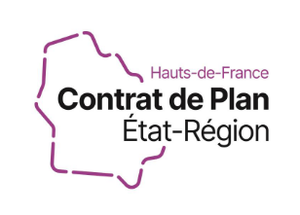Directeur :
Fabien GOSSELET
Type et Numéro : UR2465
N° école nationale : ED585
École doctorale : Sciences, Technologie, Santé
Secrétaire et gestionnaire
Nathalie NAWROT
Faculté Jean Perrin
rue Jean Souvraz - SP 18
62307 Lens Cedex
Tél : 03 21 79 17 35
Fax : 03 21 79 17 36
Blood-brain barrier (BBB) is localised at the brain microvessel level and isolates the brain from the whole body. This barrier represents an obstacle to deliver drugs into the central nervous system. Therefore there is a real need to better understand this barrier to treat neurodegenerative diseases.
Our laboratory has been investigating BBB for at least 30 years by developping in vitro models using animal but also human cells. With these in vitro models, we study BBB physiology in normal and pathological conditions. We also aim to better understand molecular and cellular mechanisms involved in drugs passage across the BBB in order to improve diagnostic or therapy for neurological diseases such as Alzheimer's disease, stroke, Parkinson's disease, etc .
Currently, the laboratory is composed of 7 researchers, 7 technical members and students/post-doc. Among our different in vitro models, we developped and patented a human BBB model consisting to cultivate CD34+-derived endothelial cells with brain pericytes. We also develop human models based on iPSCs. The technical platform (SMART platform, with 2 mass spectrometers) allowing us to measure drug/molecule passage across the BBB.
The BBB-Lab was involved in several national and european projects. We have participated in 2 FP7 2008-2013 : EUSTROkE, focusing on stroke, and PREDICT IV, aiming to develop in vitro models to assess drug toxicity. We also were involved in the european project ACUTETOX, for predicting the neurotoxicity of chemicals in the frame of the REACH legislation.
We are currently involved in these following projects : REACHGLIO, iMATRIX, BtRAIN, EatstheBBB, PETABC, G2B, SNOWBALL, DIASYN, In3, NanoStem, CNS Antidote, MAGBBRIS & NINTARMAL. Projects and equipments of the BBB laboratory are also supported by the french state and the Hauts-de-France Region via the CPER MOSOPS project (2021-2027).

|
Don't hesitate to follow us on twitter !

